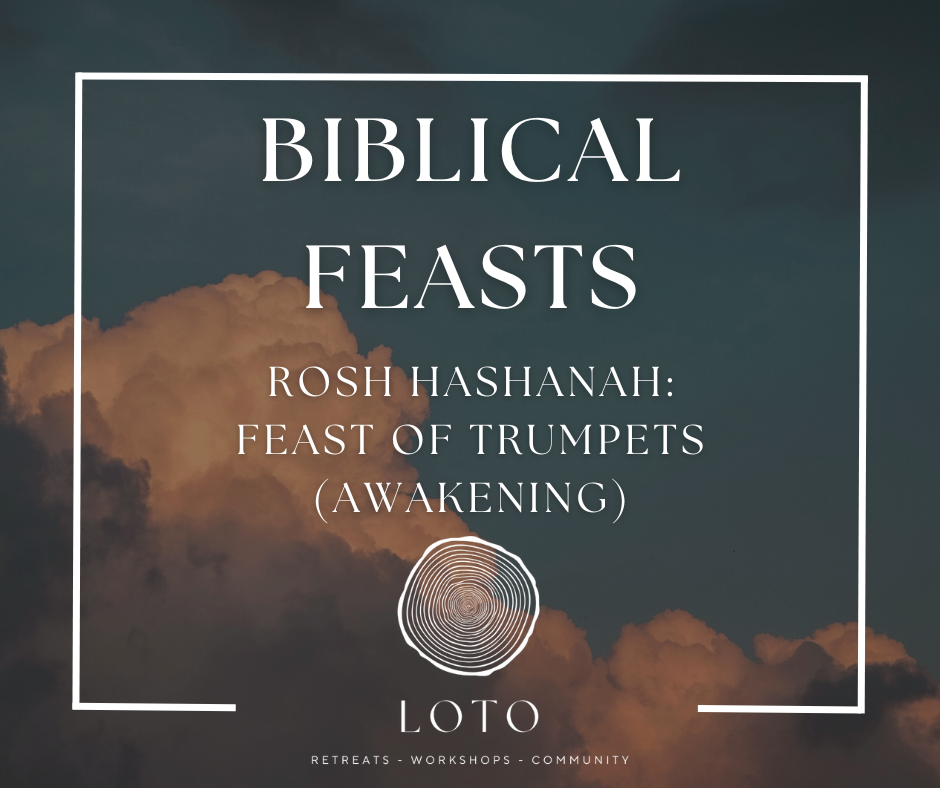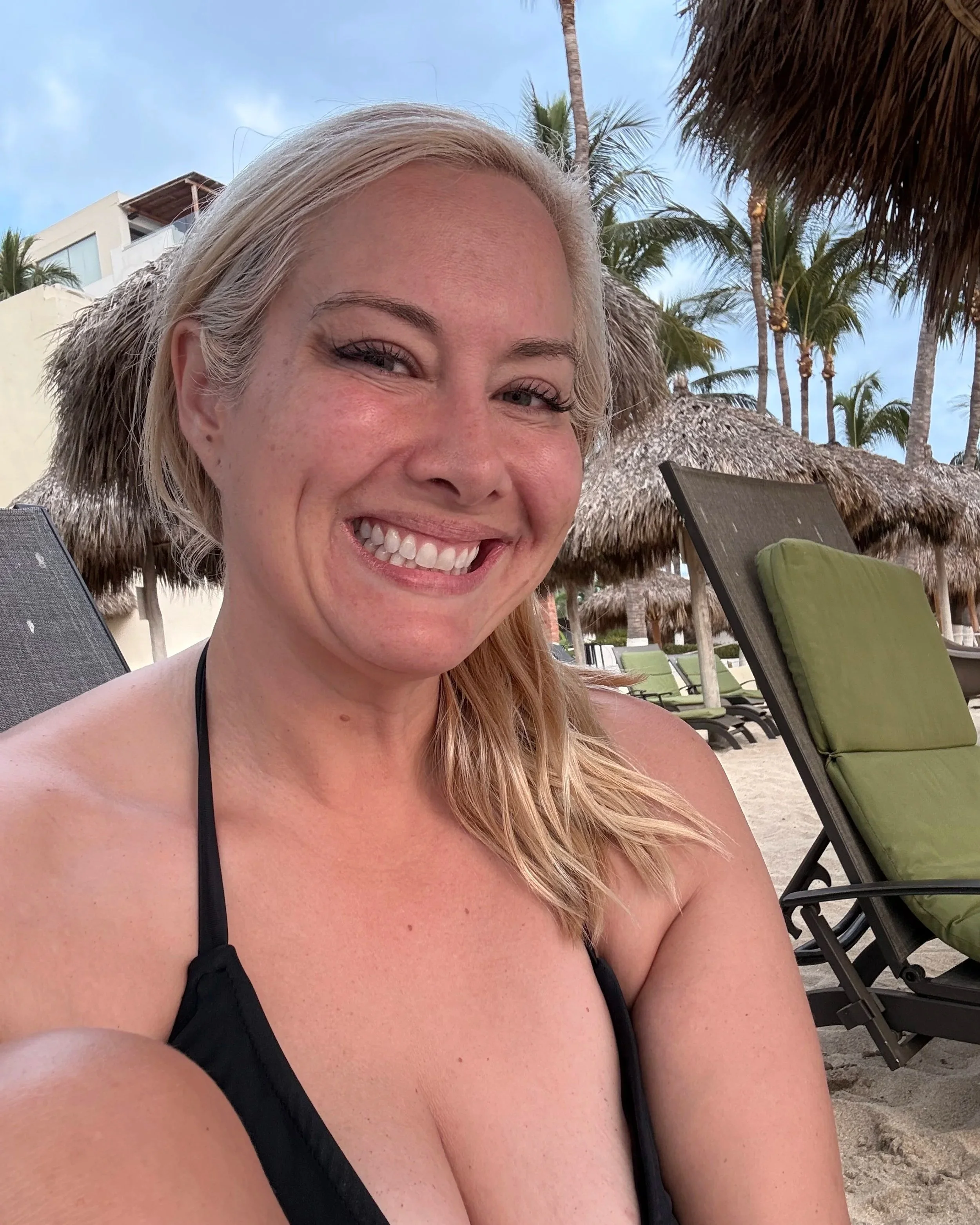Biblical Feasts: Rosh Hashanah (Feast of Trumpets) - Awakening
“Awake, my soul! Awake, harp and lyre! I will awaken the dawn.”—Psalms 57:8 NIV
After the spring feasts — Passover's liberation, Unleavened Bread's purification, Firstfruits' gratitude, and Pentecost's illumination — the biblical calendar turns toward autumn. Here, the cycle shifts from growth and harvest to reflection and renewal. The first of the fall feasts is the Feast of Trumpets, known in Hebrew as Rosh Hashanah, the new year.
It does not begin with a feast of food, but with a feast of sound. The haunting cry of the shofar pierces the air, raw and untamed. It is not a melody but a summons. Not entertainment, but alarm. Its meaning is simple and profound: Awaken.
The Call of the Shofar
In Leviticus 23:23–25, God commands Israel to mark the first day of the seventh month as a sacred rest, "a memorial proclaimed with the blast of trumpets." Throughout the Hebrew scriptures, the trumpet (shofar) carries weight. It signals war (Joshua 6:20), worship (Psalm 150:3), and divine revelation (Exodus 19:16–19). Its sound is never casual—It shakes, gathers, and awakens.
On Rosh Hashanah, the trumpet's cry is not for battle, but for the soul. It interrupts forgetfulness. It calls us back to awareness: God is King, life is fragile, and every breath is holy. "Blessed are the people who know the joyful sound! They walk, O Lord, in the light of Your countenance." (Psalm 89:15)
Awakening from Forgetfulness
The rabbis say the sound of the shofar recalls the ram in Abraham's story (Genesis 22), God's provision in the place of fear. Others say it echoes creation itself, when God's breath first filled dust with life (Genesis 2:7). Still others say it mirrors the voice at Sinai — thunder, lightning, and the trumpet's blast that made the people tremble (Exodus 19:16).
Mystics interpret the shofar as the voice of God that still vibrates through creation. It is the alarm clock of the spirit, jolting us from illusion. Forgetfulness, they say, is the root of all sin — forgetting who we are, forgetting we live in God and God in us. The shofar brings us back.
As Meister Eckhart wrote, "God is at home, it is we who have gone out for a walk." The trumpet reminds us to come home.
The Days of Awe
Rosh Hashanah does not stand alone. It opens the Ten Days of Awe (Yamim Noraim), a sacred period that stretches from Rosh Hashanah to Yom Kippur, the Day of Atonement.
These ten days are for reflection, repentance, and reconciliation—They are days to seek forgiveness, not only from God but from one another. In Jewish tradition, Yom Kippur atones for sins against God, but not for sins against others. Those require face-to-face reconciliation. The Days of Awe are a time to repair relationships, to soften hard hearts, to make peace.
Isaiah's words capture the spirit of this season:
"Seek the Lord while He may be found, call on Him while He is near. Let the wicked forsake their ways and the unrighteous their thoughts. Let them turn to the Lord, and He will have mercy on them" (Isaiah 55:6–7).
But awe (yirah) is not fear; it is reverence, wonder, trembling recognition of the Holy. Abraham Joshua Heschel wrote, "Awe is an intuition for the dignity of all things, a realization that things not only are what they are but also stand for something supreme."
The Days of Awe, then, are not just about moral inventory. They are about cultivating a posture of reverence toward life itself. Each breath, each choice, each relationship is sacred.
The Nondual Invitation
In dualistic frames, the Feast of Trumpets is about dividing: the righteous written in the Book of Life, the wicked blotted out. But mystics invite us to hear a deeper call. The trumpet does not divide; it unites. Its sound reverberates through all creation, dissolving the illusion of separation.
Paul hints at this mystery when he says, "In him we live and move and have our being" (Acts 17:28). The trumpet awakens us to what has always been true: we are already in God, even when we forget.
Julian of Norwich heard this same truth in her vision: "All shall be well, and all shall be well, and all manner of thing shall be well." The trumpet is not a threat but a reassurance: even in our wandering, we remain within God.
Beginning Again
Rosh Hashanah means "head of the year." It is the permission to begin again — not as a reset that erases the past, but as a spiral that carries us deeper into God's Presence. We awaken, we forget, we awaken again. God's mercy is endless.
The shofar, then, is not just history but invitation. Each year, each season, each moment, it calls us back to Presence.
"Beloved, we are God's children now; what we will be has not yet been revealed. What we do know is this: when he is revealed, we will be like him, for we will see him as he is." (1 John 3:2)
The Feast of Trumpets is the beginning of that revelation. It is the sound of the soul stirring awake.
Reflection Questions
Where do you sense the trumpet sounding in your own life right now?
Who might you need to seek reconciliation with during these Days of Awe?
How do you experience awe — not as fear, but as reverence and wonder?
What would it mean for you to begin again, not by striving, but by remembering?
The trumpet awakens us, and the Days of Awe teach us to walk awake. But the journey does not end there. These ten days culminate in Yom Kippur, the Day of Atonement — the holiest day of the year, when awe deepens into mercy and forgiveness flows like water.









Yom Kippur is not merely about wiping away wrongs; it is about restoring union. The people are reconciled with God, with one another, and with themselves. Alienation is dissolved. Oneness is remembered.